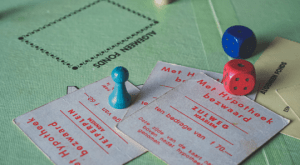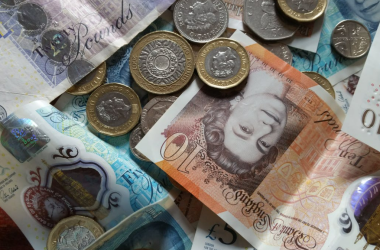Understanding finance is never easy, whether in real life or a game. So, the game of monopoly is a clever way of making kids comfortable with handling money from an early age. Considering How much money to start with in Monopoly gives the children a glimpse into the world of financial risks and creates an idea of how to accumulate wealth.
How to Play Monopoly?

Even though the game through the years got twisted and played with a personalised set of rules in each household, the official steps to play monopoly remain the same. Before getting to the rules, we must first check the components and set up of the game.
Components of monopoly
A monopoly usually has
- A playing board and two dice
- Colourful tokens for the players
- 32 houses and 12 hostels
- 16 chance and community chest cards
- 28 title deed cards for each property
- Lastly, the essential component is money.
Set up of the game

The chance and community chest cards are kept face down in their allotted places on the board, and players choose a token to represent them while travelling around the world. To answer the most common question, while playing monopoly, of how much money you start within monopoly, it is $1500.
Someone is chosen to be the banker who keeps account of all the salaries and the loans, taxes etc., to be paid. If the banker is also playing in the game, he or she must keep his funds separated from the bank’s money.
One exciting power of bankers is that they cannot go bankrupt. If he runs out of money, he can issue as much as he wants by simply writing on plain paper.
The game’s goal is to become the wealthiest player by buying property, selling and renting out assets and finally forcing other players to go bankrupt.
The actual gameplay
The banker begins the game by throwing the dice and is followed by the other players. The tokens are initially placed at the place marked “GO”, which moves according to the number given by the dice. Two or more tickets can remain on the same spot simultaneously.
The dice must always land on the board; if it ends up in any other place, the roll becomes invalid, and it must be rolled again.
Based on the token’s location, we can choose to buy the commercial property or be compelled to pay rent, tax credits, draw a chance or community chest card or even go to jail and miss a turn. Throwing a double can go either way, as we may need to pay for any penalties about the space our token landed on, or we might get certain privileges provided by the spot.
Only after this can the player roll again and move forward. But throwing a double thrice in succession will immediately land the player in monopoly jail!
Some special rules

- Rule of go: Every time a player passes the “GO” spot on the board or lands on it in the game, the banker has to pay the player a $200 salary.
- Rule of property purchase: In case a player lands on an unowned property, they have the provision to buy it from the bank at a price printed on the title deed card and receive the card as the token of property bought.
- If the player does not buy the property, the Banker sells it through an auction where every player can place a bid, including those who initially didn’t choose to buy it.
- Rule of rent payment: When we land on property owned by other players, we need to pay rent to them following the rent given on the title deed card.
- If the property is mortgaged, the owner cannot collect rent, and the deed card is faced down.
- Rule of chance and community chest: Ending up in these spots will require them to draw the top cards from the deck indicated and follow its instructions.
- The jail law: If sent to jail, the player’s turn ends, and they miss out on receiving $200 even if they pass “GO.” But, in case a player is not sent there but lands on it in an ordinary course of action, he is just visiting and can move in the usual manner from the next turn.
- Players can buy and sell property from jail.
How property is sold?
Unimproved properties and other utilities may be sold to other players as private transactions for any amount the owner can get. But when buildings of that colour group stand on the property, they cannot be sold.
Hotels and buildings can be sold back to the bank anytime at half the price it was purchased at.
How does the game end?

Bankruptcy is when a player owes more than they can pay to the other players or the bank.
A bankrupt player has to forfeit the game, and the last player left in the game becomes the winner. Now, after knowing the entire course of the game, we finally focus on understanding how much money do you start within a monopoly.
The banker must give each player $1500 to start the game in the denominations of $500, $100, $50, $20, $10, $5, and $1. The number of each note will be two of $500, two of $100, two of $50, six of $20 and five of $10, $5, and $1.
This division of capital creates a level playing field for all the participants, and through the course of the game, we understand its necessity.
Conclusion
Understanding the finance world by knowing How much money you start within Monopoly at a young age could be a great advantage for today’s generation and what better way to do it than by a game.
The clever structure of the game engages people to continue till the end, and even without realizing it, they learn a lot more than they could have imagined. But to finish anything justly, we need a modest beginning that can only be provided by the banker’s equal distribution of monopoly currency.







